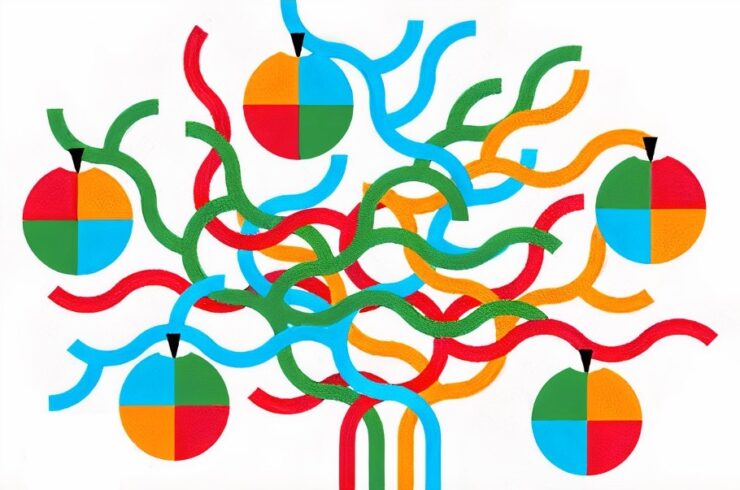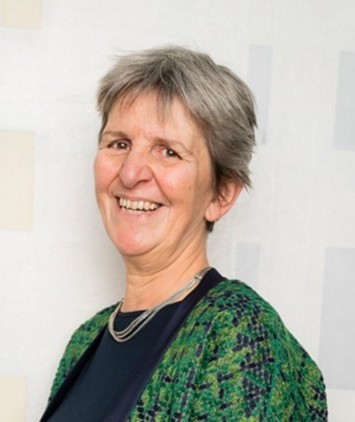Events
“Academic Freedom as a ‘Matter of Concern’” – Berteke Waaldijk (UU)

Concerns about academic freedom are everywhere. In this talk, Berteke Waaldijk asks what it might mean to turn academic freedom into a ‘matter of concern’ as proposed by Latour (2004) or a ‘matter of care’, a concept proposed by Puig de la Bellacasa (2011). She does this from the position of having been invited to explore academic freedom at University of Amsterdam this spring (2023).
The exploration took place in a heated debate about dangers of woke presence in classrooms. Initially, Latour’s 2004 invitation to turn away from ‘debunking’ as core business of critical studies in social and humanities (‘The critic is not the one who debunks, but the one who assembles’) was a temptation. However, two things made – still makes – her pause. One was the lack of appreciation for critical projects conducted in the humanities (feminist studies, critical race studies were never the paper tigers that he describes) the other was the too generous trust in ‘care and caution’ as alternative tools of the new critic (‘the one for whom, if something is constructed, then it means it is fragile and thus in great need of care and caution’, p 246). In this seminar, Waaldijk argues that research into academic freedom cannot do without debunking, precisely because academic freedom is more than an isolated matter of fact. It is indeed a gathering, an association; it is a ‘matter (that refuses) to think away spatial and temporal characteristics’ (p 245) and as such it is powerful. Because it is fragile at the same time, it seems it cannot do without care either. However, she is critical whether care (even in Puig de la Bellacasa’s expanded feminist sense) is what should augment new critical theory.
Waaldijk looks for ways in which debunking and care be thought together. In her experience of exploring the strengths and fragilities of academic freedom, there was for her indeed, as Puig de la Bellacasa formulated in 2011, ‘something embarrassing, in exposing what we care for […], politically and affectively’ (p 97). For her, this embarrassment has to do politically with the bifurcation of care and debunking. It also, more affectively, has to do with the entanglement of her research, activism, and teaching, as well as being an employee and implicated in university administration. This entanglement is something that she shares with academic freedom as a matter of concern.
 Berteke Waaldijk (1957) is a scholar of history and gender studies. She holds the chair ‘Language and Culture Studies’ at the Faculty of Humanities at Utrecht University and is part of the Graduate Gender Programme. Her research is focused on gender, culture and citizenship. She publishes on history and gender of Social Work in the Netherlands and in Europe, on colonial culture and citizenship, on history of Dutch Women’s movements and on gender, history, and philosophy of the humanities. She explores transdisciplinary aspects of historical research. In addition to these research interests she is involved in projects on learning and teaching and related to Gender Studies and the Liberal Arts Programme ‘Language and Culture Studies’ at Utrecht University. She is committed to connect critical academic scholarship with worlds of activism and advocacy. She is involved in a project sponsoring undergraduate and graduate students at the UU to consider Community Based Research as part of their learning trajectory and works with students on Participatory Action Research. Waaldijk was the academic coordinator of ATHENA3, the Advance Thematic Network in European Women’s Studies (2005-2009) and she chaired the research group ‘Work, Gender and Society’ of the Network of Excellence, CliohRES (2005-2010). She was co-founder of ATGENDER, the European Association for Gender Research, Education and Documentation and is now a honorary member of that organization. She chaired the editorial board of the ‘Tuning-Brochure’ Reference Points for the Design and Delivery of Degree Programmes in Gender Studies(Socrates / Life Long Learning Programme: 2010).
Berteke Waaldijk (1957) is a scholar of history and gender studies. She holds the chair ‘Language and Culture Studies’ at the Faculty of Humanities at Utrecht University and is part of the Graduate Gender Programme. Her research is focused on gender, culture and citizenship. She publishes on history and gender of Social Work in the Netherlands and in Europe, on colonial culture and citizenship, on history of Dutch Women’s movements and on gender, history, and philosophy of the humanities. She explores transdisciplinary aspects of historical research. In addition to these research interests she is involved in projects on learning and teaching and related to Gender Studies and the Liberal Arts Programme ‘Language and Culture Studies’ at Utrecht University. She is committed to connect critical academic scholarship with worlds of activism and advocacy. She is involved in a project sponsoring undergraduate and graduate students at the UU to consider Community Based Research as part of their learning trajectory and works with students on Participatory Action Research. Waaldijk was the academic coordinator of ATHENA3, the Advance Thematic Network in European Women’s Studies (2005-2009) and she chaired the research group ‘Work, Gender and Society’ of the Network of Excellence, CliohRES (2005-2010). She was co-founder of ATGENDER, the European Association for Gender Research, Education and Documentation and is now a honorary member of that organization. She chaired the editorial board of the ‘Tuning-Brochure’ Reference Points for the Design and Delivery of Degree Programmes in Gender Studies(Socrates / Life Long Learning Programme: 2010).
Suggested readings:
-
Stolker, Carel, Stoker, Janka, Waaldijk, Berteke. ‘Powerful and vulnerable. Academic Freedom in practice’. (UvA Research 2023) Summary of this report for Amsterdam University (or 5 page summary), ‘No institutional abuse, but academic freedom must be guarded’ can be found here.
-
Puig de la Bellacasa, Maria. “Matters of care in technoscience: Assembling neglected things.” Social studies of science 41.1 (2011): 85-106.
-
Latour, Bruno. “Why has critique run out of steam? From matters of fact to matters of concern.” Critical inquiry 30.2 (2004): 225-248.
You can register by sending an email to tim@uu.nl, or via Eventbrite.
This session is part of the Transmission in Motion seminar (2023-2024): “Matters of Concern”. To stay updated with more seminar sessions, please subscribe to our newsletter.

